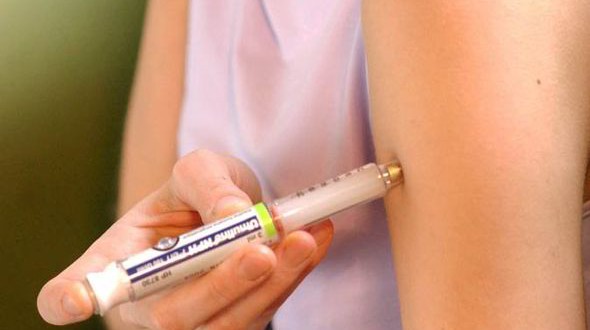Treatments to reduce blood sugar levels do more harm than good in many type 2 diabetes patients, new research has found.
The study*, published in JAMA Internal Medicine, from researchers from UCL, the University of Michigan and the Ann Arbor Veterans Affairs Hospital, found that for many people the benefits of taking diabetes medications are so small that they are outweighed by the minor harms and risks associated with treatment.
“For people with type 2 diabetes, the goal of managing blood sugar levels is to prevent associated diabetes complications, such as kidney, eye and heart disease, but it is essential to balance complication risks and treatment burdens when deciding how aggressively to treat blood sugars,” says lead author Sandeep Vijan M.D., M.S., professor of Internal Medicine at the U-M Medical School and research scientist at the Center for Clinical Management Research at the VA Ann Arbor Healthcare System.
“If you’re a patient with fairly low complication risks, but are experiencing symptoms from low blood sugar, gaining weight or find frequent insulin shots to be disruptive to your daily life, then the drugs are doing more harm than good. Prescribing medicine isn’t just about reducing risks of complications, but also about helping patients improve their quality of life.”
Vijan notes that for many patients, once moderate levels of glucose control are achieved, there is little additional benefit to intensive blood sugar treatment, but treatment costs, burdens and risks increase substantially. The study finds that the benefits of treatment decline with age and by age 75 the harms of most treatments are likely to outweigh any benefits.
The findings exclude the 15-20 percent of people with type 2 diabetes who have very high blood glucose levels (which are defined by what’s called an A1c test ) and need more aggressive treatment to manage the disease.
Individualized treatment recommendations determined by patients’ estimated risk of diabetes complications – influenced by their age and degree of blood glucose elevation – and considering the side effects and amount of safety data of the medication being considered, is a much better approach than focusing solely on glucose goals, the researchers argue.
“Drugs that lower blood sugar levels are extremely beneficial in some patients but offer almost no benefit for others. These results have major implications for the millions of people who are currently being told that they need to increase medication in order to achieve their ‘glucose goal,'” says senior author Rodney Hayward, M.D., professor of medicine in the U-M Medical School and senior research scientist at the Center for Clinical Management Research at the VA Ann Arbor Healthcare System.
“Current quality measures do not allow doctors and patients to make good decisions for each patient because they emphasize reaching targets instead of thinking of the risks and benefits of starting new medications based on individual circumstances and preferences.”
The study is the latest to challenge “treat-to-target” guidelines in medicine. Research concluding that risks outweighed benefits of drugs intended to achieve specific blood pressure goals in some patients prompted a significant change in hypertension guidelines last year and similar recommendations were implemented for lipid lowering therapy.
Agencies/Canadajournal

 Canada Journal – News of the World Articles and videos to bring you the biggest Canadian news stories from across the country every day
Canada Journal – News of the World Articles and videos to bring you the biggest Canadian news stories from across the country every day

